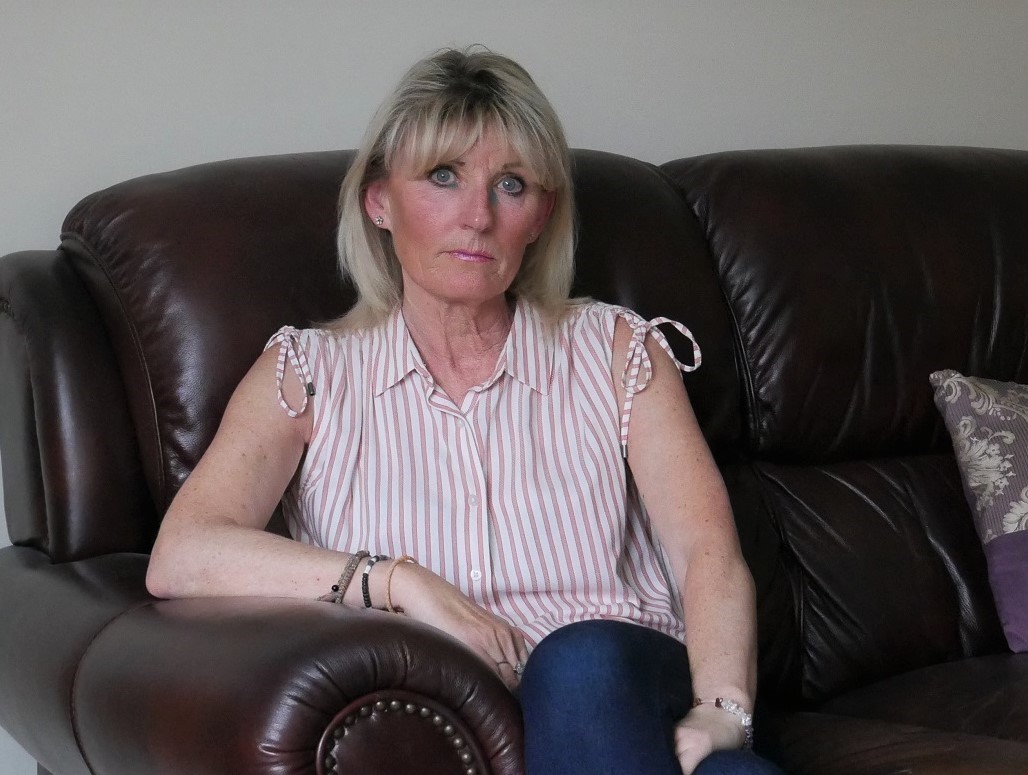Smoking to blame for £604million a year economic loss
NEW figures paint a stark picture of how smoking not only harms the health of lifelong smokers but damages their employment prospects and earnings too – like Sue Mountain from South Tyneside.

A new analysis by Landman Economics for health charity Action on Smoking and Health (ASH) finds that the collective impact of joblessness and lower earnings for smokers amounts to an estimated £14.1bn a year:
- Nationally, over 300,000 smokers over 21 are not working each year, forfeiting £6.9bn in lost earnings, while the 5.05 million in employment earn £7.2bn less than non-smokers.
- Working smokers have annual earnings that are on average 6.8 per cent lower than non-smokers; equivalent to £1,424 per smoker.[1] When adding the average annual cost of tobacco (£1,355), the analysis finds the cost of smoking per individual is £2,759 per year
- In the North East that means a total loss of £604m for the region, with over 17,000 people out of work as a result of smoking.
The relationship between unemployment and smoking appears to be driven primarily by smoking-related illness and disability, which impacts worse on smokers than non-smokers.
Fresh with ASH has submitted a response to the Comprehensive Spending Review – including this research – [2] [3] to demonstrate how the Government’s ambition to end smoking [4] has a crucial role in spreading economic growth, wealth and opportunities across the country, [5] particularly in the poorest most disadvantaged communities where smoking rates are highest.
Ailsa Rutter OBE, Director of Fresh, said: “We know that smoking devastates people’s health – but it is also devastating to their prospects and to our economy. Most smokers start as children, hooked by the tobacco industry, and people from poorer backgrounds are more likely to smoke, fall ill from smoking and die at a younger age.
“This is a terrible time for many with job insecurities around COVID and lockdown and we understand that families and our communities now face big challenges.
“However, it is clear the ill health caused by smoking is harming the prospects of far too many people with much to offer, as well as money draining from families and communities and into the pockets of major tobacco companies. They should be made to pay for the harm caused.
“Reducing smoking is vital if we are to level up economic opportunities and close the gap between the richest and poorest and help rebuild the North East economy and people’s prospects after COVID-19.”
Former smoker Sue Mountain, from South Shields, saw her career as a lecturer halted by smoking and her life turned upside down when she was diagnosed with laryngeal cancer.
{video}local|images/videos/SueSept45sec.mp4|images/PR_and_news/SueCropped.jpg |Suesstory{/video}
Sue said: “You never think it’s going to happen to you. No matter how much you’re struggling financially, you always find money to fund your addiction.
“When I separated from my husband, I had two daughters to support and a mortgage to pay. I remember we would ration a pound of mince between us all for the week.
“When I look back at what I have spent on cigarettes, it must have been £50,000 at least. It could have bought me half a house, instead of cancer.”
ASH, Fresh and many other leading health organisations, are also calling on the Government to use the Spending Review to put the public health grant on a long-term sustainable footing for the future. An analysis by the Health Foundation has found that an extra £0.9bn a year is required to reverse real term per capita cuts since 2015/16 and over £2bn a year extra would be needed to allow additional investment in the most deprived areas where there is greatest need. And that was before the COVID-19 pandemic.[6]
Deborah Arnott, Chief Executive of ASH, said: “Our findings demonstrate how crucial the Government’s ambition to end smoking is to delivery of other key pledges to ‘level up’ economic opportunity and close the health gap between the richest and poorest. Funding for public health must be put on a strong and sustainable footing or the Government will not be able to achieve any of these pledges. The Spending Review must provide the significant additional investment that is desperately needed. The ‘polluter pays’ levy on tobacco manufacturers, which the Government promised to consider over a year ago, should be introduced without further delay.”
The analysis compared the employment prospects of smokers and non-smokers using national government surveys, and found that over time, and adjusting for other factors such as level of education, smokers were 5% less likely to be in employment compared to non-smokers, rising to 7.5% for those who had been smoking longer. [1]
References
[1] Action on Smoking and Health (ASH). Smoking, employability and earnings. September 2020. Contact for copy of full report.
[2] HMT. Comprehensive Spending Review 2020 representations: guidance
[3] Contact for a copy of the detailed Comprehensive Spending Review representation.
[4] Department for Health and Social Care and Cabinet Office. Advancing our health: Prevention in the 2020s. July 2019.
[5] HM Treasury. Budget 2020: Delivering on our promises to the British people. March 2020.
[6] Second joint statement to the Government on public health reorganisation. September 2020.
